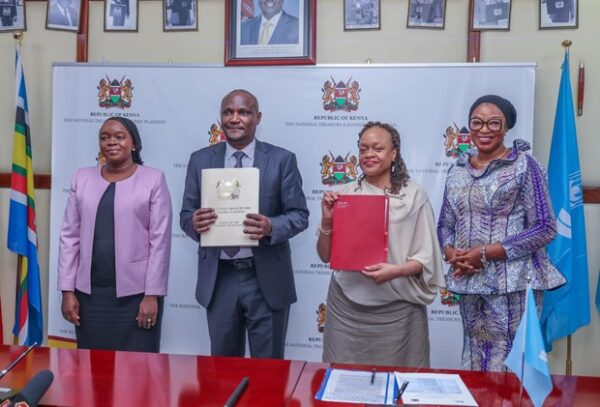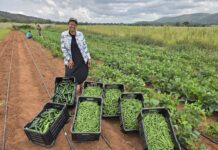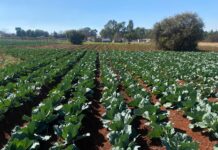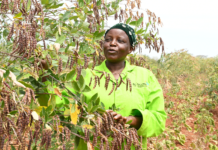The International Fund for Agricultural Development (IFAD) and the Government of Kenya signed a US$ 126.8 million investment project that will assist over two million rural people to better manage natural resources and climate-related risks so they can increase their food security, incomes and resilience.
The Integrated Natural Resources Management Programme (INReMP) is an eight-year project that scales up successful results already achieved in smaller IFAD programmes in Kenya. It aims to contribute to rural households’ food, nutrition, and income security through a more sustainable ecosystem, particularly targeting women, youth, and vulnerable communities living in the Cherangany Hills and Mau West water towers.
“It is now evident from our work that natural resource management is linked to livelihood activities and agroforestry can be sustainable and provide multiple benefits. INReMP will leverage knowledge from our projects and scale-up interventions that have been proven to work in our previous investments in the country,” said Sara Mbago-Bhunu, Regional Director.
Agriculture contributes 33 per cent to Kenya’s GDP and employs 53 per cent of the population, but farming output has not kept up with the rapid population growth of nearly 2 per cent annually. At the same time, Kenya is ranked 52 amongst the most vulnerable countries to climate change and extreme weather, contributing to low yields, loss of livelihoods, and depletion of natural resources.
“This programme is not just about conserving the environment, it’s about securing the livelihoods of our rural communities, restoring their natural resources, and building resilience for future generations,” said Hon. FCPA John Mbadi Ng’ong’o’, Cabinet Secretary, The National Treasury and Economic Planning.
Current projections indicate that temperatures will rise by 1.5°C to 2.5°C from 2046 to 2065, with erratic rainfall patterns and increasing droughts and floods, which severely impact agriculture. In addition, the country’s natural resources are threatened by over-exploitation and unsustainable land use practices.
The Cherangany Hills and Mau Forest are two of Kenya’s five major water towers, vital for water supply and ecosystem health. Despite this, rural communities living within these two water towers face high levels of natural resource degradation, over-reliance on unsustainable economic activities, cross-boundary conflicts and limited access to water for irrigation infrastructure and inefficient resource use.
To boost the communities’ resilience to the climate shocks, the project will support them in managing their forests, rangelands, arable land, wetlands and water resources. This will lead to an increase in forest cover and carbon sequestration while decreasing soil erosion and reducing natural resources-related conflicts.
To ensure these conservation efforts bring long-term benefits, the project will also help farmers generate income through activities such as dairy, poultry, apiculture, horticulture, and agroforestry. In addition, the project will invest in climate-proofed water infrastructure, climate and weather information systems, renewable energy, and facilitate access to climate financing.
The total cost of the programme is US$262.8 financed by IFAD (US$126.8 million), Green Climate Fund (US$40 million), the Government of Kenya (US$23.5 million), Global Environment Fund (US$7.14 million), the private sector (US$10.1 million) and project participants (US$8 million). A financing envelope of US$47 million is open to new and interested financiers.
Since 1979, IFAD and its partners have financed 21 projects with a total of US$1.2 billion, reaching over four million households in Kenya.








